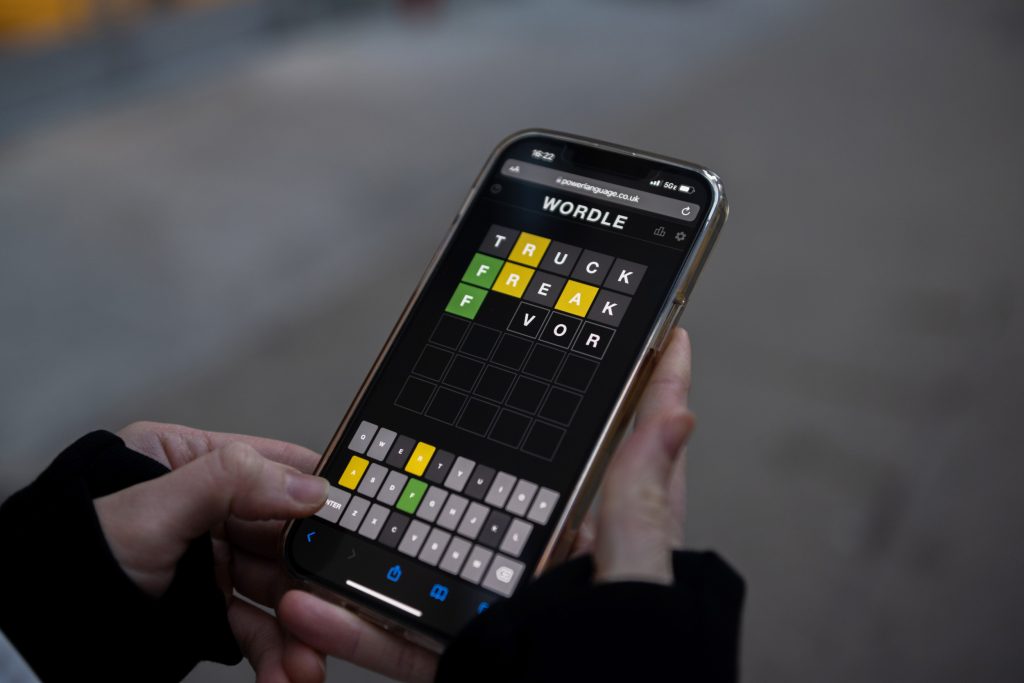Wordle, the captivating online word puzzle, continues to enthrall players worldwide with its simple yet challenging gameplay. The objective is straightforward: decipher a hidden five-letter word within six attempts. Each guess provides valuable feedback, with correctly placed letters highlighted in green and letters present in the word but in the wrong position appearing in yellow. This ingenious color-coded system allows players to strategically refine their subsequent guesses, inching closer to the solution with each attempt. The game’s elegant design, combining elements of deduction, vocabulary, and a touch of luck, has cemented its place as a daily ritual for millions.
The genesis of Wordle lies in the creative mind of Josh Wardle, a software engineer who initially developed the game as a personal project for his partner. Its public release in October 2021 sparked an unprecedented surge in popularity, growing from 300,000 daily users in January 2022 to millions shortly thereafter. This meteoric rise culminated in the acquisition of Wordle by The New York Times for a seven-figure sum, a testament to the game’s widespread appeal and enduring charm. Wardle’s meticulous design process, involving experimentation with word length and allowed attempts, led to the optimal combination of five letters and six tries, a balance that strikes the perfect chord between challenge and attainability.
The allure of Wordle extends beyond its simple mechanics; it lies in the strategic freedom it affords players. Each individual can develop and refine their own unique approach to unraveling the daily word. Some prioritize vowels, hoping to quickly narrow down the possibilities, while others focus on common consonants, seeking to uncover the skeletal structure of the word. This strategic diversity fosters a sense of personal ownership and allows players to constantly adapt and evolve their techniques. Sharing strategies and comparing results within online communities further enhances the social dimension of the game, creating a shared experience that transcends geographical boundaries.
To assist those facing a particularly challenging Wordle puzzle, hints and clues are often provided. For instance, hints might reveal the number and position of vowels, highlight less common letters, offer thematic clues related to the word’s meaning, or even reference popular culture. These hints serve as a lifeline, guiding players towards the solution without explicitly revealing the answer. They encourage continued engagement and offer a sense of accomplishment when the word is finally unveiled. The careful crafting of these clues ensures they provide enough information to be helpful without diminishing the challenge or the satisfaction of solving the puzzle.
Consider the example of Wordle #1,311. The first hint reveals the presence of two vowels as the third and fourth letters, immediately narrowing down the possibilities. The second hint, indicating a less common letter as the second, further restricts the field. The third hint, categorizing the word as an animal, provides a thematic context. The fourth hint, drawing on a dictionary definition referencing “eight short arms and two usually longer tentacles,” strongly suggests a marine creature. Finally, the fifth hint, referencing a popular Netflix series, solidifies the answer as “squid.” This step-by-step unveiling of clues allows players to actively participate in the deduction process, experiencing the satisfaction of piecing together the solution.
Wordle’s global appeal is reinforced by its daily reset at midnight local time, ensuring a fresh challenge for players worldwide. This daily ritual fosters a sense of consistency and community, with millions of players engaging with the same puzzle each day. The game’s accessibility, requiring only an internet connection and a few minutes of time, contributes to its widespread adoption. Its minimalist design, devoid of distractions and advertisements, allows players to focus solely on the intellectual challenge at hand. The combination of these factors has solidified Wordle’s position as a cultural phenomenon, a testament to the power of simple yet engaging gameplay.










